News from 2024-07-24 / KfW Development Bank
Andhra Pradesh's sustainable agriculture programme wins the Gulbenkian Prize
Award emphasises the importance of climate-resilient land use systems
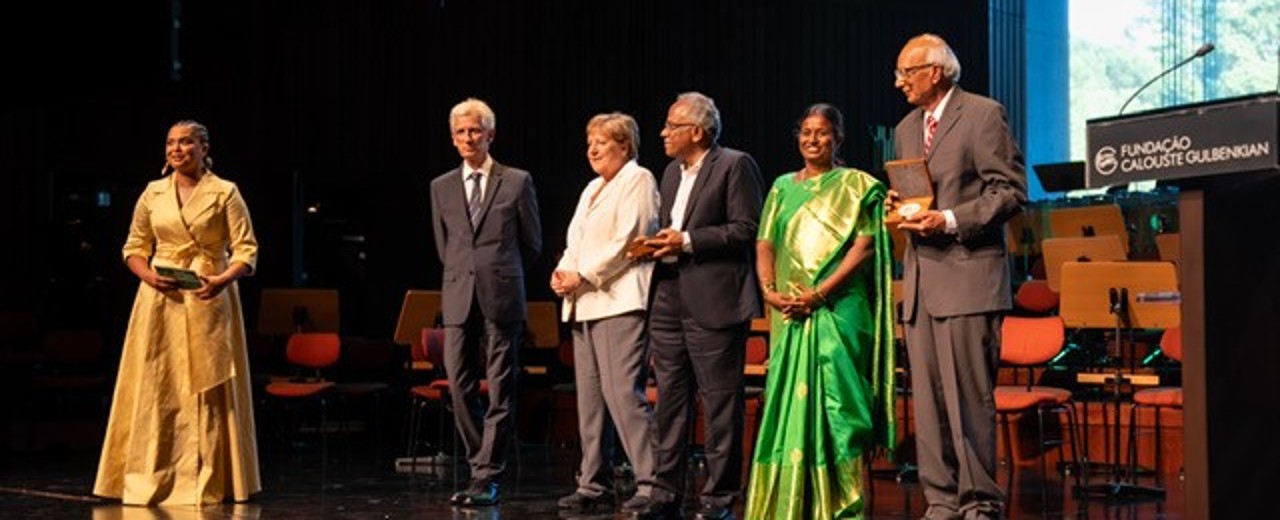
Sustainable agriculture in the Indian state of Andhra Pradesh (Andhra Pradesh Community Managed Natural Farming APCNF) has won the ‘Gulbenkian Prize for Humanity 2024’. The prize is sponsored by the Portuguese Calouste Gulbenkian Foundation (CGF) and is awarded annually to three individuals and organisations that contribute to global food security, climate resilience and the protection of ecosystems. This year's winners were selected from 181 nominations by a jury chaired by Dr Angela Merkel, former German Chancellor. The award emphasises the importance of climate-resilient and sustainable agricultural and land use systems and is intended to inspire others to follow suit.
Challenges and ambitious goals
Agriculture in India is facing major challenges: the increasing degradation of arable land and the improper use of mineral fertilisers and synthetic pesticides have affected yields and worsened the economic situation of farmers.
To counter this, APCNF was founded seven years ago by Rythu Sadhikara Samstha (RySS), the state Farmers' Empowerment Organisation. RySS co-operates mainly with women's self-help groups. The programme focuses on reviving the soil fauna, increasing the humus content and water retention capacity of the soil and diversifying cultivation. With success: the families' incomes are rising and the quality of food is improving. And the new production techniques strengthen the ability to adapt to climate change.
The Indian government's goal is to convert all six million farms in Andhra Pradesh to this climate-resilient natural agriculture over the next ten years. To this end, KfW Development Bank has provided a loan of EUR 90 million and a grant of EUR 1 million for the Andhra Pradesh Climate Resilient Natural Farming project on behalf of the German Federal Ministry for Economic Cooperation and Development (BMZ). By 2027, around 500,000 micro-enterprises will receive help in converting to natural farming methods. The provision of funds follows a results-based approach: funds are disbursed to the partner RySS once agreed, verifiable results have been achieved.
Women as a driving force for sustainable agriculture
The programme in Andhra Pradesh is based on locally developed agroecological approaches and is being continuously developed. The farmers use natural resources such as cow dung, cow urine, mulch and plant extracts for soil improvement, fertilisation and plant protection. This is a more horticultural, labour-intensive technique.
The result: the soil is revitalised and the plants' resistance to disease and pest infestation is strengthened. Thanks to more stable growing conditions - compared to conventional cultivation - the plants are better protected against extreme weather conditions such as droughts and heavy rainfall. A higher density of soil organisms such as earthworms, bacteria, fungi, algae and protozoa contributes to increased fertility. A large number of advisors who live in the villages and practise the cultivation methods themselves ensure that knowledge is disseminated.
As women do a large proportion of the agricultural work, they have become a mainstay of the project. Many women are organised in self-help groups that campaign for social change and health issues. They are also winners of the Gulbenkian Prize.

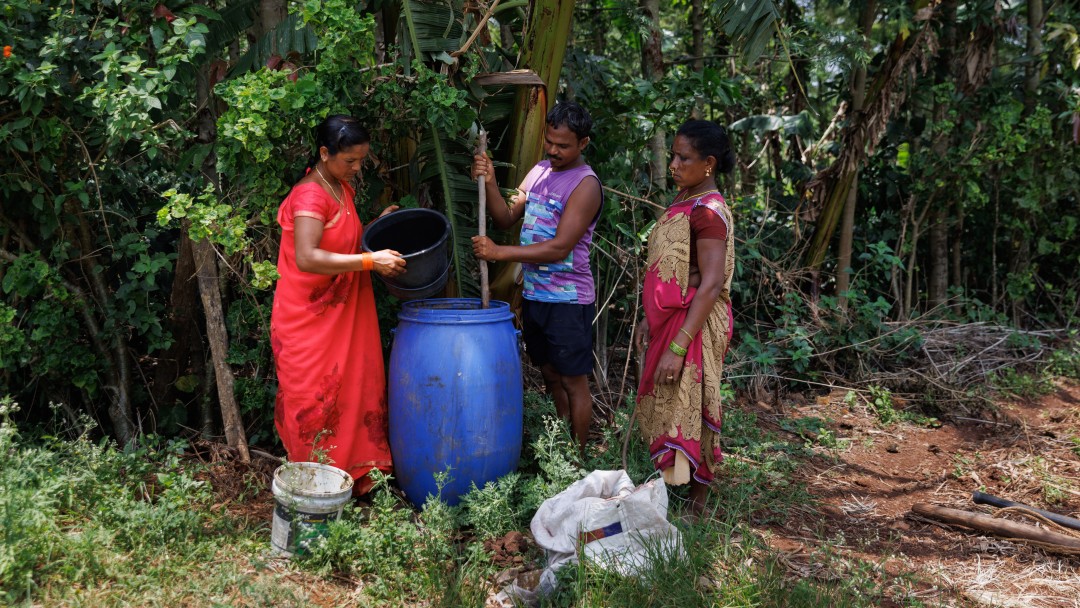
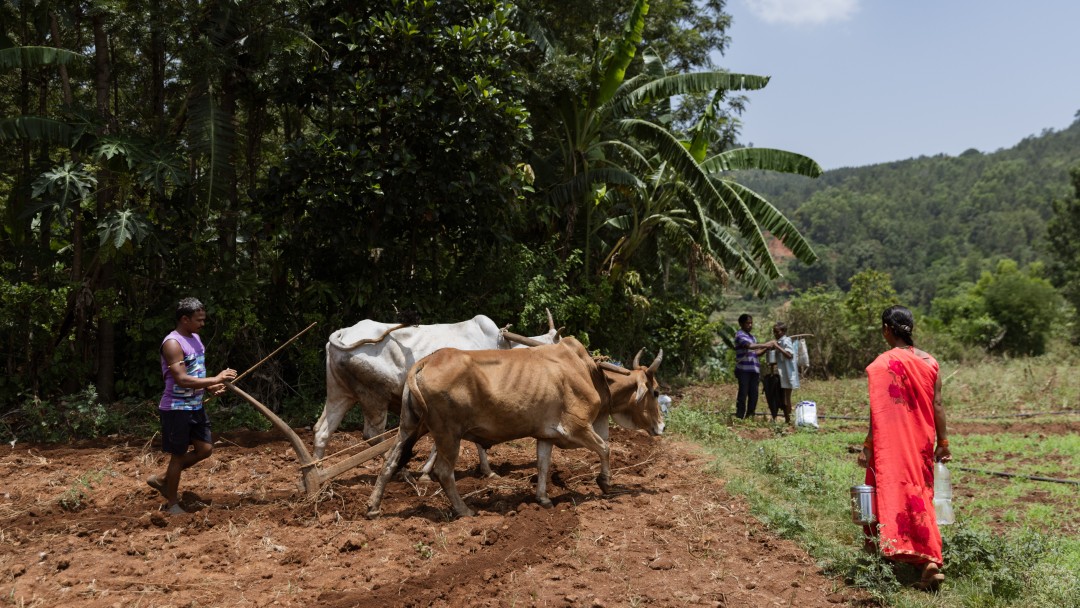
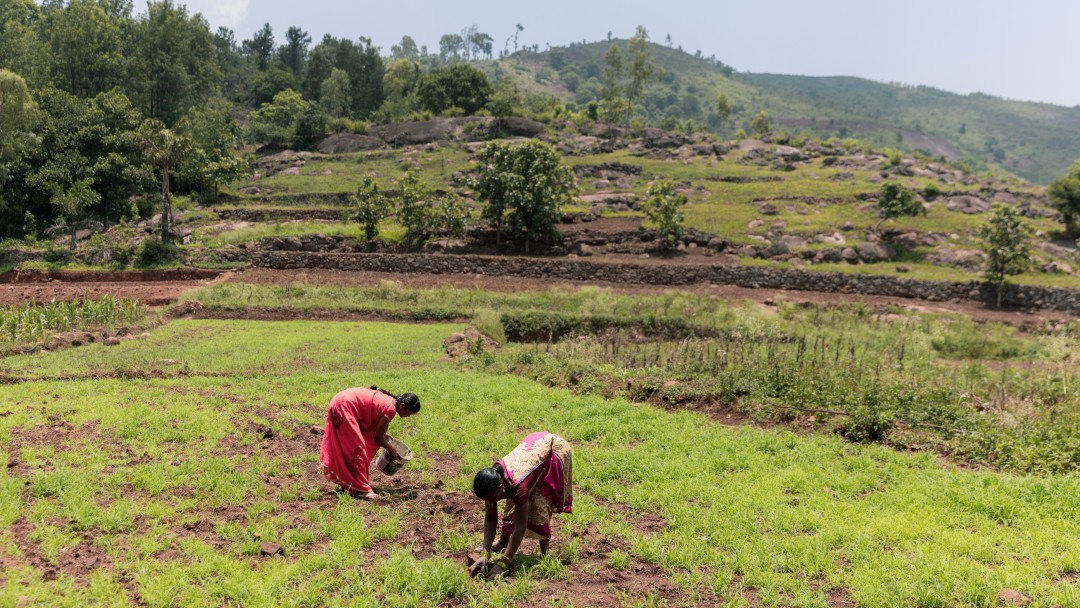
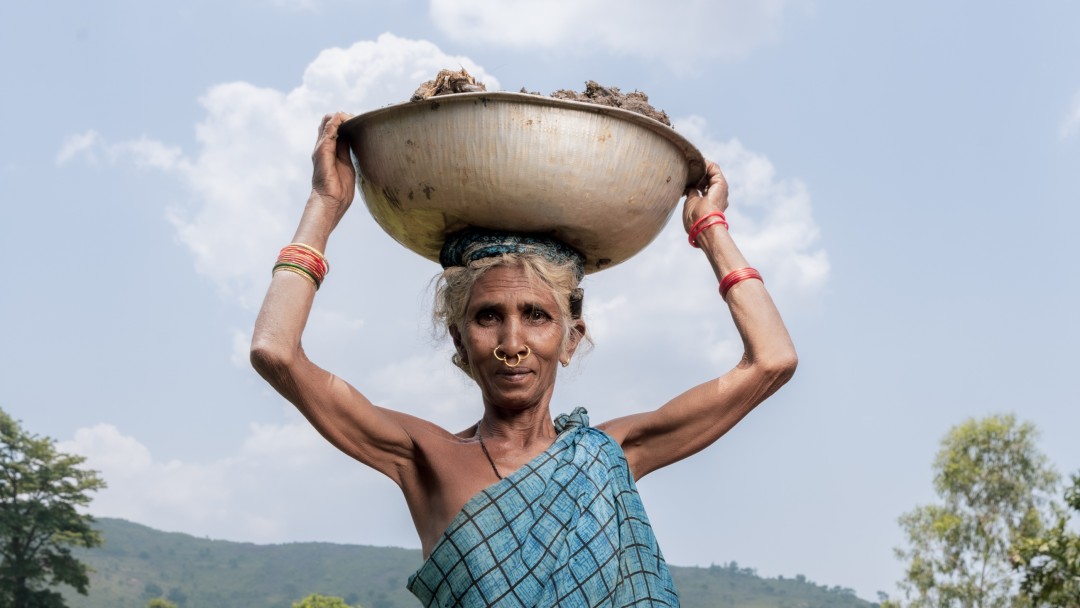
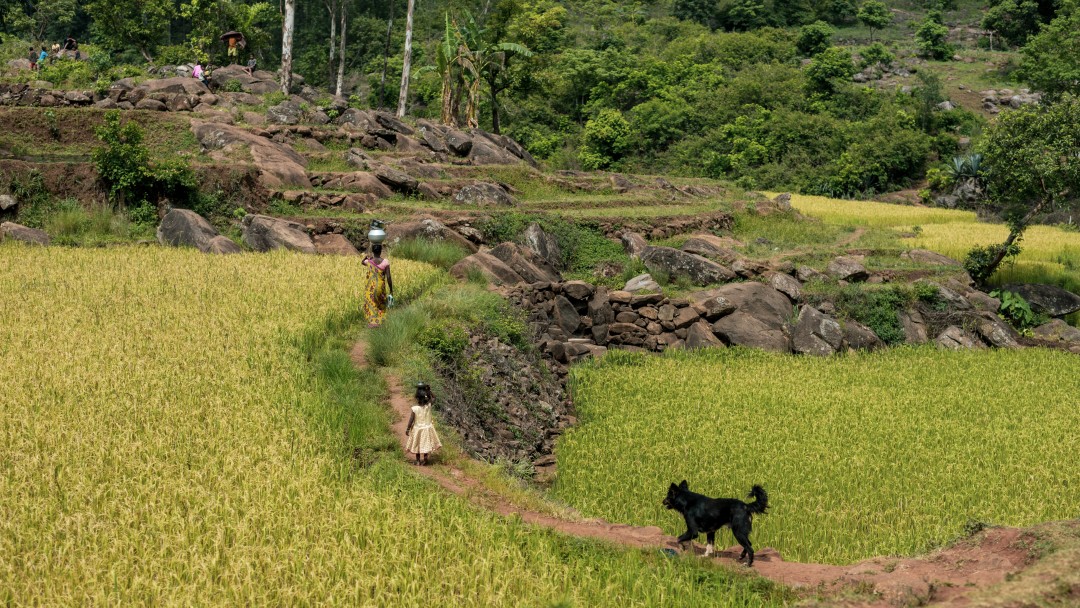
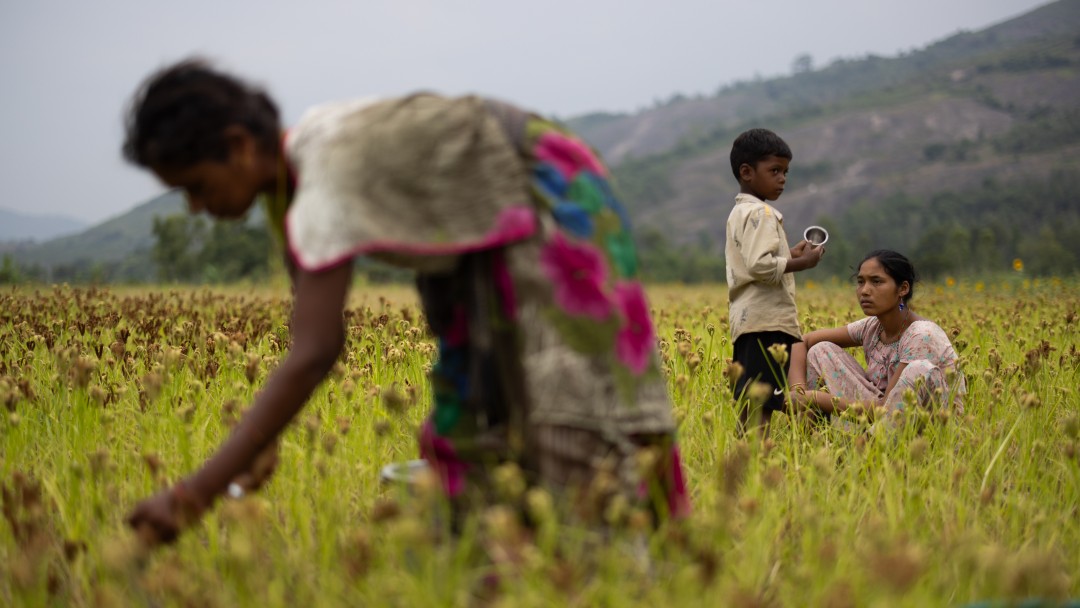
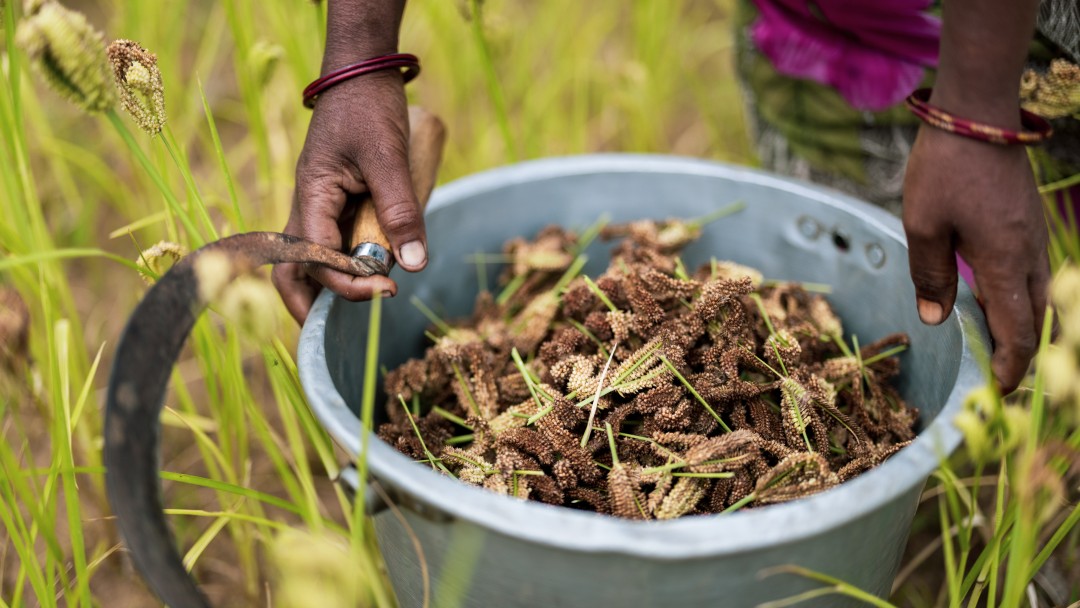
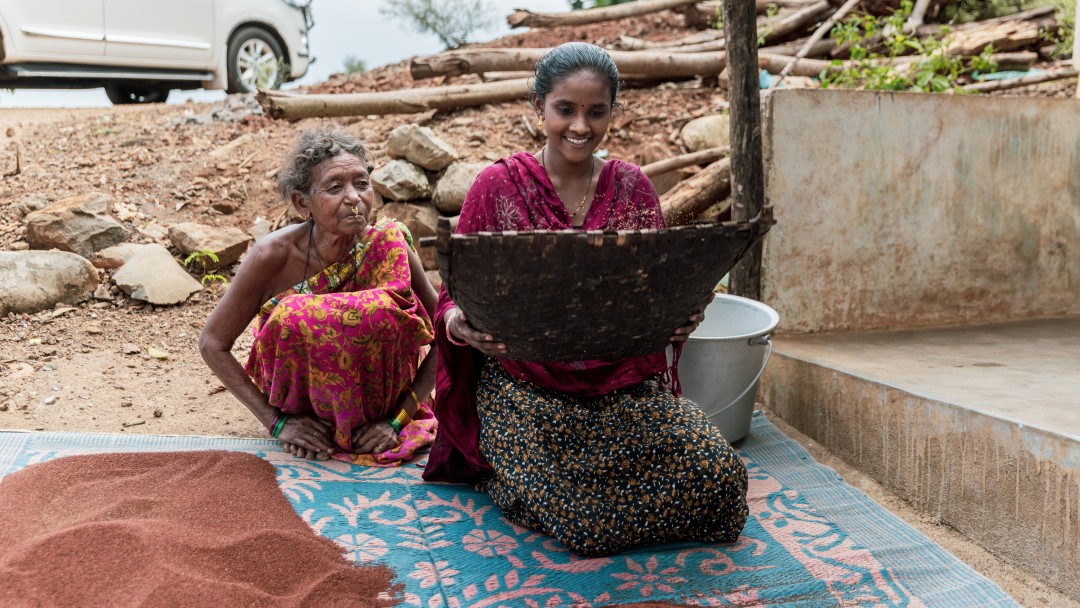
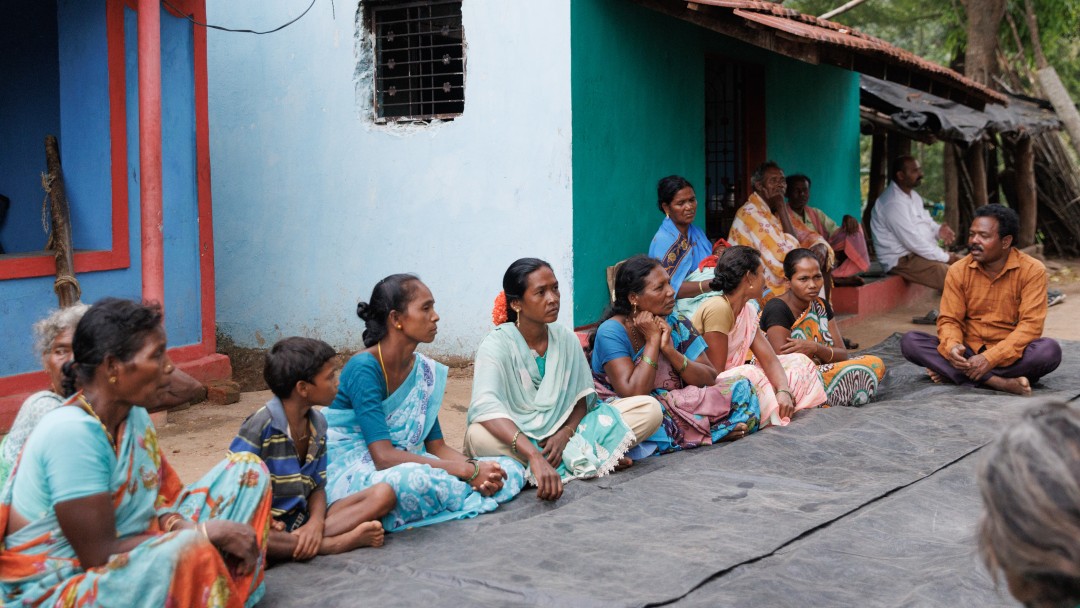
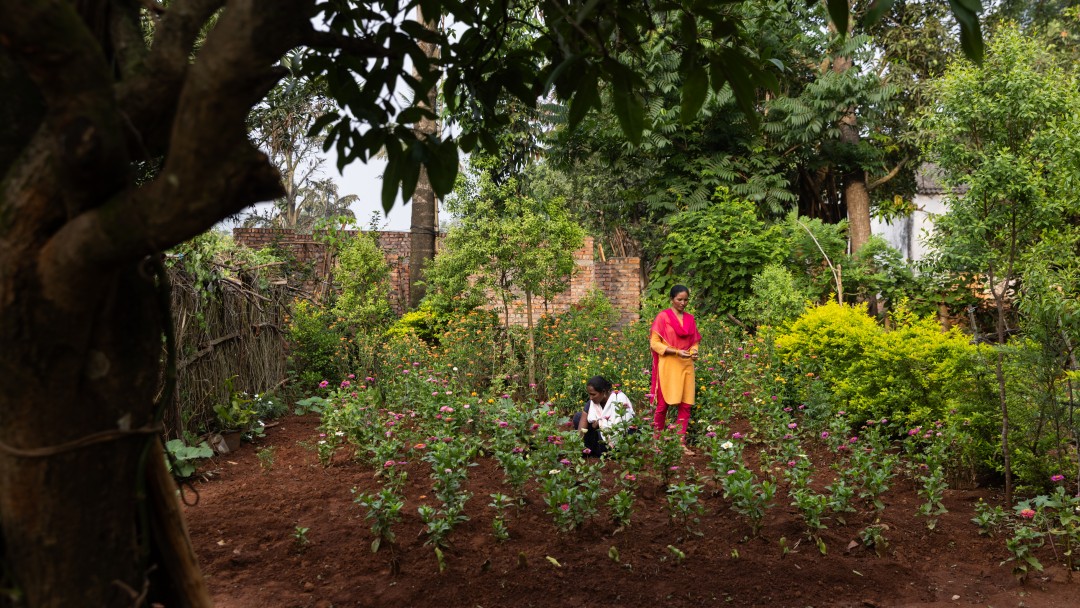
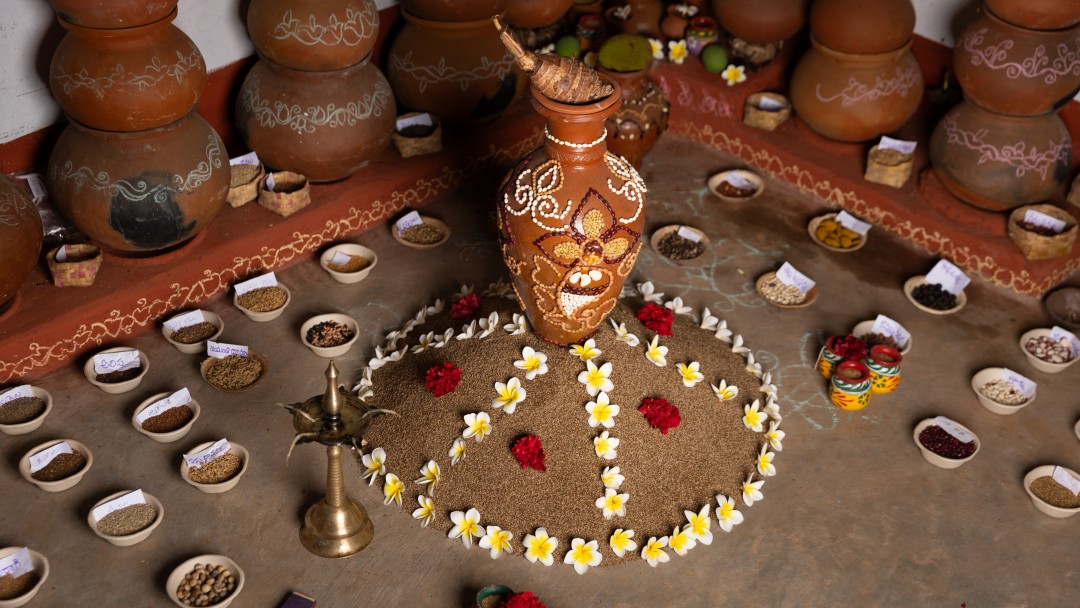
Share page
To share the content of this page with your network, click on one of the icons below.
Note on data protection: When you share content, your personal data is transferred to the selected network.
Data protection
Alternatively, you can also copy the short link: https://www.kfw-entwicklungsbank.de/s/enzBWrMC.DG8A
Copy link Link copied